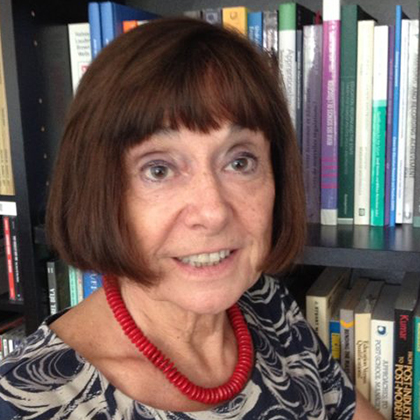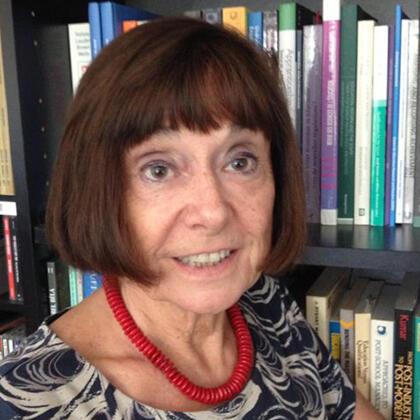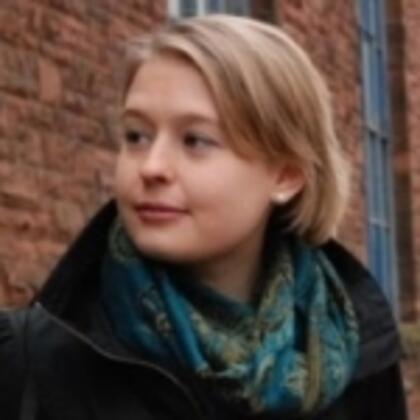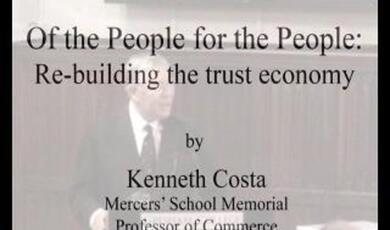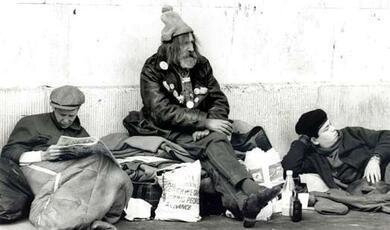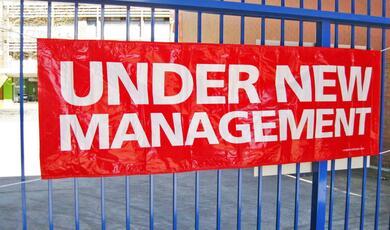The Teaching of Commerce: 'The News on the Street' and 'Enterprise and the Developing World'
Share
- Details
- Transcript
- Audio
- Downloads
- Extra Reading
The News on the Street: What young people are saying about enterprise Some lessons from the evaluation of the NFTE programme by Professor Prue Huddleston, Centre for Enterprise and Industry, University of Warwick An investigation of how we might tackle social disadvantage through enterprise education. Professor Huddleston will call on her extensive research carried out through the Network for Teaching Entrepreneurship programme.
Enterprise and the Developing World by Sally Broom, Director, Your Safe Planet
A first-hand account of young entrepreneurship in the UK and abroad. Sally Broom is the Founder and Director of Your Safe Planet, a travel company which links people around the globe and promotes volunteering opportunities. She will talk about her own experiences, offer some advice and consider why entrepreneurship is so important, on both a local and global level.
Download Transcript
Sally Broom
It gives me real pleasure to be talking about two things that I am really passionate about: enterprise and development. Business in general, and especially business that makes more than money, makes a positive impact. Something that I hope to touch on is enterprise links to development goals, both here in the UK and overseas; the importance of young people in all of that; I would like to also introduce my own venture, 'Your Safe Planet'; and finish with offering you potentially a new paradigm for business in the 21st Century.
What do you call a business that makes a positive social impact? There is a lot of rhetoric at the moment about business that is responsible, ethical - we quite often talk about social enterprises, ethical business, NGOs. For me, it becomes really confusing, and I think that for many young people starting out in business, it is a similar thing.
So what do I call a business that makes a difference? Firstly, I call it a business, a business. I think this is a really important point because, for any organisation, whatever its goal, to achieve that goal, must be financially sustainable, and we are starting to understand more about how important it is for any organisation to have a business mentality. If you look at some of the most successful UK charities and you look at the boards that run them, quite often you will see people who have phenomenal commercial experience, and that is of course for very good reason, because any organisation needs to be financially sustainable, move away from a dependency on grants or other financial support, needs to have strong business planning, and it needs to adopt a business mentality. So I think that actually, if we are myth busting, I would like to bust the myth that a responsible and ethical business has to be anything other than a business.
If we look at some of the biggest UK and global brands, we associate them with large profits - some more than others at the moment, but most of them have been incredibly successful, and yet, behind the scenes, are often doing phenomenal work in development and in environmental research. It is only when you delve a bit deeper, you realise some of the phenomenal work being done by these mega-brands. We ask ourselves why are they doing this, why does it matter? Presumably their first and final responsibility to their shareholders is to make the best returns they can.
It becomes interesting when we look at who sets the trends for business. The average age of the online consumer who is setting the trends is getting ever younger, and I say that with an appreciation for the fact that the fastest growing demographic of online consumer is actually at the older end of the spectrum. When we look at where the trends are being set, especially in the social networking forums, and the trends that are being driven, it is quite interesting that young people are driving a new kind of business thinking, because they are very socially conscious.
I can only really speak from my personal experience, as an aspiring entrepreneur, and I am quite involved with regional young enterprise work, or enterprise work with young people. I am always bowled over by the phenomenal conscience of every young person I deal with, who is looking to either set up a business or has an interest in enterprise, and every one of them will have some sort of social conscience supporting their business idea.
I am also interested at how frustrated they often are as consumers. They want to spend their money and get the best service, but they also want to know that where they are spending their money is in the right places. I think there is a focus now on win-win in business, and they, as young consumers, want to ensure that is the case with the brands they spend with. Their voice is becoming ever more powerful because of the online forums to which they have access. I love the fact that one of the most powerful websites in the UK is Bebo, which is a social networking website for the average age of about 15. For the last two years the RAF's strongest recruitment tool has been Bebo, and I think that is quite an interesting example of where we can look to see the consumers of the future.
Why do I care about this? Why is this at all important to me? A Mintel report was published almost three years ago, and it talked about the important economic impact of young people in the travel industry. It talked about the benefit that young people have on local economies worldwide, because they tend to travel off the beaten track, and they distribute wealth better, and they are more adventurous. They play a crucial role in development, because they support developing tourism products overseas. Now, I suppose I am on the cusp, at 25 - I still like to consider myself as a young consumer and a young traveller. Three years ago I was travelling around South East Asia. I had my guidebook, but I wanted to go further; I wanted to get off the beaten track and have my own unique experience, and in doing so, I wanted to spend my money in the right places. I had a great experience, I met wonderful people, and I saw what you might call the real side of some very popular destinations.
I then had an equally interesting experience when I came across a very remote border between Lao and Cambodia, and I got into a fairly sticky situation with some border guards there, who saw me as a walking target and decided they wanted to relieve me of some of my cash, and I thought, fair enough. I had not really researched my route very well. Had I researched it, using some local knowledge, I might have been more aware that that probably was not an excellent place to cross borders, but I did so anyway, and I learnt a good lesson doing it.
The reason this all matters to me is because I came back from that trip and I was in my third and final year at University College London. I was studying Human Sciences, which is a science-based Neurology and Anatomy degree, with a view to going into Law. I was coming up to my finals, and decided that, on the side of my course, I would take a module in Business, as a part of which we had to come up with a case study for a make-believe company. I had just had this experience travelling and I thought, if I can think back to the best travel experiences I have ever had, it has been when I have known somebody in the destination before I got there, so they could help me plan my trip, with all of their local knowledge and advice. If I think of the times when I have ended up getting in a pickle, or potentially not having a fantastic experience, it has been because I have gone unprepared. So my business case study for the module was a global network of trusted local contacts, who travellers could get in touch with before they arrived in the destination and ask for any sort of advice that they want, all the way from 'should I cross over this border between Cambodia and Lao?' to 'I have a real passion for learning languages, I would really like to learn a new skill when I am away - can you help me do that?' So, Your Safe Planet, as a concept, was born during that time at university.
I was greatly empowered by the structure the university gave me. They gave me mentors, they gave me access to learning and to skills, to skill bases that I would otherwise have had no idea how to access - everything from lawyers and accountants through to business planning mentors - and suddenly, I was finishing my finals, and I had a readymade business plan. I also had quite a lot of money in the bank saved because, until recently, I was planning to go to law school. You can imagine the delight of my parents when I came home after my final exam and said, 'The plan has changed - I'm not going to law school. I am going to spend my life savings on developing a business!' But luckily, they were incredibly supportive, and realised that they could not have stopped me if they had have wanted to anyway, and so they encouraged me to go ahead and do this, and see what happened. So I spent the last half of 2006 doing this, gathering wonderful local experts on to a website, and then launching that as a company.
We developed a local connection that gives travellers access to bespoke local knowledge, but it goes so much deeper than that. It means that a traveller automatically integrates with the community that they are visiting because they have an introduction. It means they get under the surface of a new place, they do not just scratch the surface and follow the normal tourist trail, and inevitably, they spend more money locally, and distribute that money in a wider pattern.
We have also had a very interesting development in a particular niche of the travel market in volunteering. What I should say is that we have found that our largest consumer base is travellers aged between 30 to 70. We had launched assuming we would be picked up very quickly in the gap year travel industry, but that is not the case at all. We find that mainly we appeal to older travellers. But what we have found with younger travellers is the increase in enquiries of people saying, 'I really would love to volunteer, either as a part of my gap year or after university, or mainly as part of a sabbatical year during my work, and I am really not prepared £3,500 or whatever it is, to volunteer with possibly a company or with a long term project, because I just don't have the money or the time to do so. Can your connections help me? Can your guys on the ground link me to a local project that I can connect with and work, and any money that I do raise, I can give directly?' We said, 'Of course! This is an absolutely fantastic way that you can use our network. We would be really happy to support this.'
What we have found developing is this real win-win-win scenario. We charge travellers a membership fee to use our service. It is only about £50, so it is not very much, and the lion's share of that goes to our local contact in commission. So we make some money, they make a very good commission for the service that they are providing to our customer, but the customer is also saving a huge amount of money and time and hassle and everything else in using the service. But, when they are volunteers, they can do even more.
One of my favourite stories from the last two years of running Your Safe Planet has been of Emma and Lou, who were two young Irish lawyers who had a short sabbatical from work, and they wanted to travel around parts of Asia and particularly the Philippines. I met them just as they were about to book a trip with a big volunteering company. They had saved up '3,000 between them, and they were going to spend that on a volunteering placement. I said, 'Well, you can of course - and many of these volunteering companies are fantastic in the work that they do - but just as an alternative, I can offer you a link with a local expert in Manila. Our contact there is Wang, and she is fantastic. She works with all sorts of NGOs locally, one of which is Hands On Manila. It is a children's charity, which works with highly disadvantaged young people, and they would love to welcome you for two weeks if you would like to go and visit, and preferably, rather than give your money to a company, give it directly locally.' They did. They went and they visited Hands On Manila. They spent two weeks there, and had a fairly life-changing experience, but with that '3,000, they put 25 children through school for a year and funded an eight year old boy's heart transplant. They would have never, I think, been able to have that impact had they not had the local connection, which I do not take any of the credit for at all, because it was our local connection who facilitated all of this, but it really emphasised to me the power of having those local contacts.
So, that is where we have come from and how we have developed. The future of YSP hangs very much in the balance right now. We have been going through quite an evolution in the last few weeks, looking at how we go forward, and take this fantastic benefit and now escalate it. I am very proud to have been working with Achievers International over the last few months by locating schools across the world who may well be able to link into the Achievers? programme, so that they link with schools in the UK, online, and create enterprising opportunities and projects, and I think what an absolutely fantastic programme! If there is anything that is going to create cross-cultural understanding, and young enterprising citizens, then this is it. We have been very proud to be involved and already seen some wonderful developments, specifically with a couple of sixth form colleges in Tanzania.
We are also looking to create partnerships with people who promote something called geo-tourism. Geo-tourism is, very basically leveraging the benefits of tourism for local communities. I would just like to throw two statistics at you at this point, which I think will make sense with regard to what I have said so far. Firstly, tourism has an impact on more people worldwide than any other industry. It has an impact on one in every two people, either directly or indirectly. The second statistic is that in global tourism, there is 97% economic leakage, so if you are going to spend £100 on going to a destination, normally only £3 of that money will reach the actual people who are providing you the services, the accommodation, etc. in the destination. If you put those two things together, you can then understand why some of the most popular tourism destinations globally still suffer phenomenal poverty and development challenges, despite the fact that they have this huge industry on their doorstep that is asking them to provide a large number of services, but they are not in any way seeing a fair reward for providing those services. Geo-tourism is about changing that. We have started a partnership, very recently, with a World Bank spin-out called WHL travel. They are a technology platform that is bringing the very grass-root travel products - hotels, locally-owned hotels, very locally-operated tours - to the global travel market, avoiding the middle men, who normally either cut them completely out of the market or just make their business unsustainable. We have started to partner with them, and with the World Bank, with their new geo-tourism programme to start upscaling the very small benefits that Your Safe Planet has seen so far into a much bigger setting. It is a very exciting year for us. Watch this space!
To bring this back to the theme of enterprise and development, I will mention an organisation called Play Pumps. Play Pumps is an international organisation that installs roundabouts in Sub-Saharan Africa, but they are not just roundabouts, they are water pumps, and every time children, at break time, go out of their school and play on them, it pumps water up into the tank. On the sides of the tank, there is marketing, there are health messages, there is all sorts of local information that is put up on there. One Water is a phenomenal global water brand, which is very successful, but all of the profits from One Water goes into developing Play Pumps. This is what I was talking about before: you have enormous global commercial brands which can be very powerful in the development world, and I think the Play Pumps initiative is probably making more of an impact across Sub-Saharan Africa than any other organisation, and it is using business principles to do that.
A much more local case study and one that I am more personally involved with is based in Barrow-in-Furness, Cumbria, in the North West of England. It is an area that has huge unemployment. It is one of the areas of the UK that is in most need of regeneration, which seems ridiculous, because on one side you have the fabulous coastline, and on the other side there is the Lake District. It is a really great place, but it has suffered, for various reasons, a huge economic decline. What is happening now is that there is a brain drain from the region; most young people who are born and brought up there leave to go to university and do not return, and furthermore the local economy is suffering.
So, as an entrepreneur who lives, works and is based up in the area around Barrow, around Furness, I have been working with my Local Enterprise Agency to create a community for young professionals and graduates who live in the area, because the one good thing is that quite a lot of graduates do come into the area because they have internship with people like Glaxo-Smith-Kline, BAE Systems, and at Sellafield too. What we aim to do is to create fantastic events that really show the wonderful things on offer in the area. We go out kite-surfing on the sea, we had a summer evening Champagne cruise on Coniston, followed by a barbeque, and we also put on business events. Tori James works at Make Your Mark, and was the youngest British woman to reach the summit of Everest, and she came to present to us as one of our Inspiring Young Adventurers series. We run this community, which is called Furness Young Professionals, as a business, and we charge tickets for events, we get corporate sponsorship. We have grown, in 18 months, to a membership of over 150 people. We have proved that, by doing this, we can encourage young professionals, to stay in the area, to realise the opportunities that are there, and to contribute in turn to the local economy. So by using business principles, we are contributing actively to the development of our local area, which is hugely rewarding.
I would like to share a quote with you that, over the last couple of years of setting up a business, has meant an awful lot to me, especially through really tough times, and you need to keep up that faith. It is a quote from Margaret Mead, the American sociologist: 'Never doubt that a small group of thoughtful, committed people can change the world. Indeed, it is the only thing that ever has.' How true!
To bring this into a business context, and in relation to what I talked about in the last few minutes, I do feel that there is occurring, as we speak, a paradigm shift and a mental shift in the way that we approach business, and in the way that we approach development. I wonder whether we are about to see a new business mentality for the 21st Century. I would like to suggest, and it is merely my suggestion, possibly an updated version of that quote, or a business version of that quote, which might read: 'With the global challenges we face, socially responsible enterprise is just business for the 21st Century. Indeed, it is the only option.' I will leave you to decide whether or not you agree with me.
© Sally Broom, 19 May 2010
Part of:
This event was on Wed, 19 May 2010
Support Gresham
Gresham College has offered an outstanding education to the public free of charge for over 400 years. Today, Gresham plays an important role in fostering a love of learning and a greater understanding of ourselves and the world around us. Your donation will help to widen our reach and to broaden our audience, allowing more people to benefit from a high-quality education from some of the brightest minds.


 Login
Login




